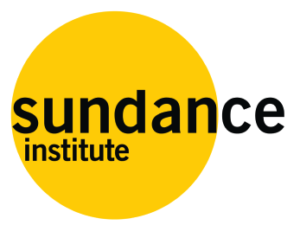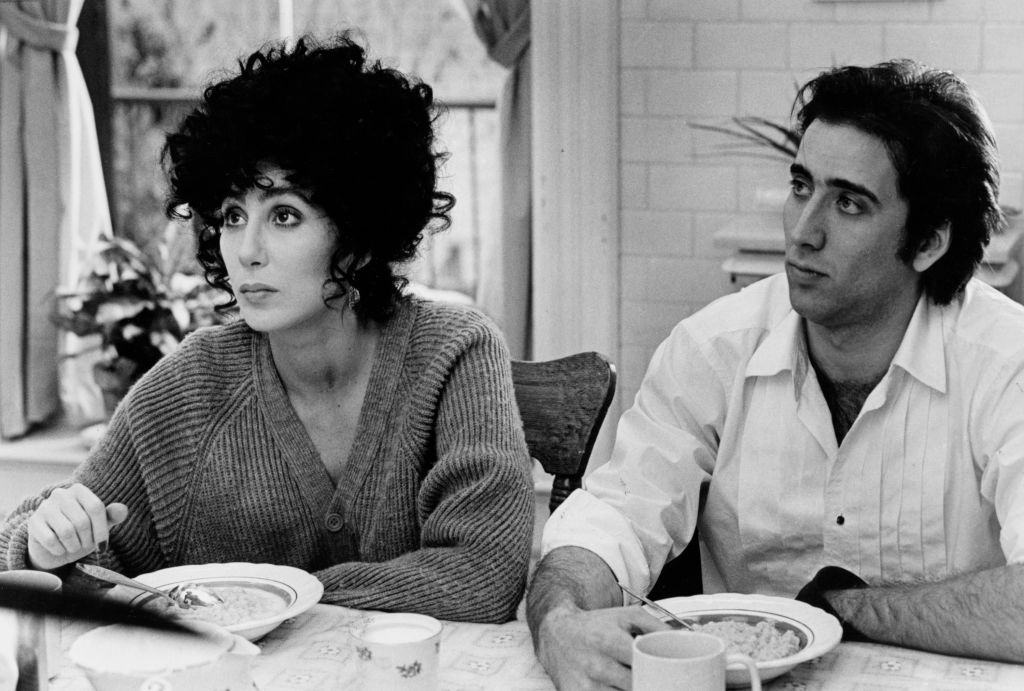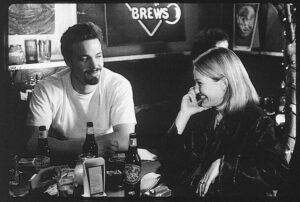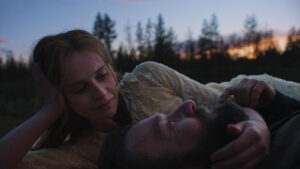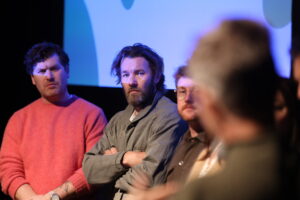By Jessica Herndon
This summer, we’re turning up the heat with a watchlist series dedicated to exploring some of the most irresistible dynamics in love and romance — straight from Sundance Institute films. From the dreamy thrill of best friends turning into lovers to the fiery sparks of battling enemies becoming flirtatious, the sweet deceit of fake relationships that lead to desire, and the undeniable intrigue of second-chance romances, we’re covering all your favorite romantic tropes. Think of it as the ultimate love story binge with a Sundance Institute twist!
As we wrap up our Summer of Love series, we’re ending on the most explosive note yet: the electric “enemies to lovers” trope. After exploring the sweetness of friends turning into partners and the charm of fake relationships and second chances, it’s time to dive into the delicious tension that comes when two people who seemingly can’t stand each other discover they’re actually perfect matches.
There’s something utterly captivating about watching two clashing characters slowly realize their animosity masks a deeper attraction. The “enemies to lovers” dynamic thrives on conflict, sharp dialogue, and that electric moment when beef transforms into undeniable chemistry. What makes this trope so irresistible is how it messes with our expectations. Love isn’t supposed to bloom from conflict, yet these stories prove that sometimes opposition can spark passion.
But in the world of independent cinema, the “enemy” isn’t always a person — sometimes it’s societal expectations, cultural barriers, or systemic forces that stand between two hearts. Whether it’s obstacles like racial tension or bigotry, these films explore how love can triumph over whatever tries to keep it apart.
Below, catch six Sundance Institute–supported films that explore the fine line between love and hate. These stories will have you rooting for relationships that began with the promise they’d never work. As always, consider yourself warned about the spoilers that lie ahead!
Moonstruck (1988 Sundance Film Festival)
After Loretta (Cher) becomes engaged to Johnny, she seeks out his younger brother Ronny (Nicolas Cage) to try to get him to come to the wedding. What begins as outright hostility — Ronny blames Loretta’s fiancé for a hand injury that ruined his life — quickly transforms into something else. Their initial confrontation is full of anger and resentment, but beneath the fury lies an undeniable attraction that neither can resist in this Oscar-winning classic, which took home Best Original Screenplay for John Patrick Shanley, Best Actress for Cher, and Best Supporting Actress for Olympia Dukakis.
The Forty-Year-Old Version (2018 Catalyst Forum; 2017 Screenwriters Lab; 2017 Directors Lab; 2017 Creative Producing Summit; 2020 Sundance Film Festival, where it won the Directing Award: U.S. Dramatic)
Playwright and teacher turned aspiring rapper, Rad (Radha Blank), meets her match in D (Oswin Benjamin), a stoic music producer who seems completely unimpressed by her desire to rhyme. Their initial meeting in the studio is awkward, with D’s cold, quiet demeanor making Rad feel dismissed and disrespected. She’s convinced he doesn’t take her seriously and has no interest in working with her. But as they continue collaborating on her mixtape, the walls between them crumble, and we learn that his reserved nature isn’t indifference — he just needed to be exposed to Rad’s raw talent and realness.
But I’m a Cheerleader (2000 Sundance Film Festival)
In But I’m a Cheerleader, Megan (Natasha Lyonne) and Graham (Clea DuVall) meet at True Directions, a conversion therapy camp designed to “cure” them of their homosexuality. While Megan initially buys into the program’s messaging and genuinely believes she can change, Graham is openly rebellious and comfortable with her sexuality. As they’re forced to navigate the camp’s oppressive environment together, their friendship deepens into romance. The enemy in this one isn’t between them, though. Instead, it’s the homophobic system trying to erase who they are, causing tension as they strive for personal victory and love. But don’t worry. Love totally wins!
Kiss of the Spider Woman (2025 Sundance Film Festival)
In Bill Condon’s adaptation of the stage musical based on Manuel Puig’s 1976 novel of the same name, cellmates Molina (Tonatiuh) and Valentín (Diego Luna) couldn’t be more different. Molina, a flamboyant storyteller imprisoned for public indecency, irritates the serious revolutionary Valentin with his elaborate movie fantasies. Their confined space intensifies as their personalities and worldviews clash. But as Molina weaves his cinematic tales night after night, something shifts between them — his stories become a lifeline, and they begin to engage in intimate conversations.
Mississippi Masala (1992 Sundance Film Festival)
In Mississippi Masala, Mina (Sarita Choudhury) and Demetrius (Denzel Washington) are drawn to each other despite the racial tensions that surround them in a small town in Mississippi. She’s a young Indian woman whose family was expelled from Uganda, while he’s an African American entrepreneur trying to build his carpet cleaning business. Their sweet attraction is immediate, but the real enemy isn’t between them — it’s the prejudice and cultural barriers that their communities focus on to keep them apart. What begins as stolen moments becomes a love story that challenges those around them to confront their biases.
Your Monster (2024 Sundance Film Festival)
When Laura (Melissa Barrera) moves back into her childhood home after a breakup, she discovers she’s not alone when a literal monster emerges from her closet, demanding she leave. What begins as hostility and terror — he wants her gone, she’s understandably frightened — slowly transforms into an unlikely bond over their shared love of theater. Monster becomes Laura’s fiercest advocate, encouraging her to fight for the lead role in her ex-boyfriend’s play. Their relationship evolves from reluctant roommates to genuine companions, as Monster helps Laura rediscover her strength.
